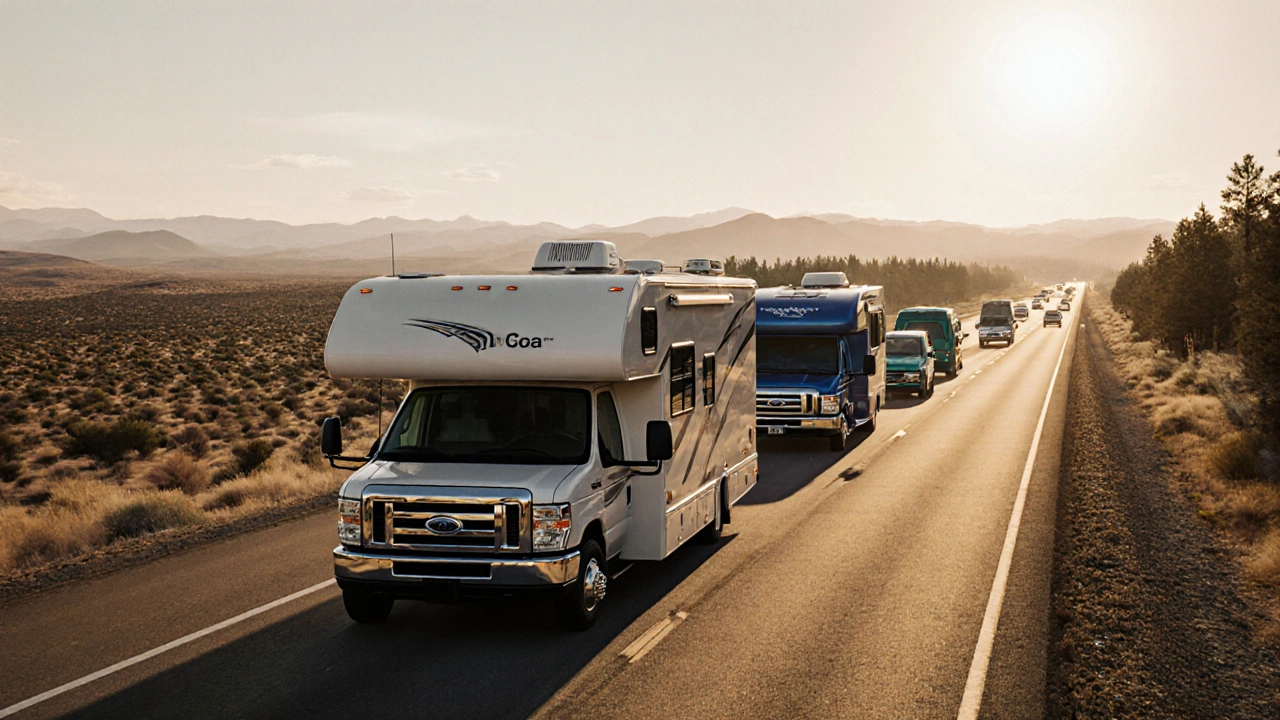RV Resale: What Every Owner Should Know
When talking about RV resale, the process of selling a motorhome or campervan after ownership. Also known as used RV market, it brings together aspects of RV buying, the initial purchase decision that sets your cost baseline, RV financing, loans or credit used to fund the purchase and RV depreciation, the loss in value over time. Understanding these pieces helps you plan a smarter exit and avoid common pitfalls.
Key Factors That Shape Your RV Resale Value
First, the age‑and‑mileage rule: newer, lower‑mileage rigs tend to hold more of their original price. That’s a simple RV resale truth, but it intertwines with how you financed the unit. A low‑interest loan or cash purchase reduces overall cost, giving you a larger profit margin when you sell. Conversely, high‑interest financing can erode gains because the total expense outweighs resale proceeds.
Second, depreciation isn’t linear. Luxury Class A motorhomes often drop 20‑30% in the first three years, then level off, while compact Class B vans may lose only 10‑15% early on. This pattern means timing matters: selling after the steepest drop can net a better return than holding onto a rapidly losing asset. Third, market demand plays a role. Seasonal spikes—like spring and summer—boost buyer interest, especially for models equipped for coastal or mountain trips. In the UK, the “wild camping” boom has increased appetite for well‑maintained vans with off‑grid capabilities, linking the popularity of stealth camping articles to higher resale prices for low‑profile rigs. Lastly, condition and upgrades matter. A clean interior, recent service records, and modern amenities (solar panels, upgraded batteries, composting toilets) add perceived value. These upgrades also appear in related content about “Is Buying an RV a Smart Financial Move?” where the balance of upfront costs versus long‑term utility is examined.
All these variables connect in a simple semantic chain: RV resale encompasses RV buying decisions, RV financing shapes affordability, RV depreciation dictates timing, and the RV vs renting debate influences whether owners keep or offload their rigs. Knowing how each piece fits lets you set realistic price expectations and negotiate confidently.
Beyond numbers, legal and administrative steps are part of the resale puzzle. Transferring V5C documents, updating insurance, and checking for outstanding finance are mandatory. Some owners also explore short‑term rental platforms—like the Airbnb guide for campervans—to generate income while waiting for the right buyer, blurring the line between selling and renting. When you’re ready to list, start with a clear, honest description that highlights mileage, service history, and any recent upgrades. Include high‑quality photos taken in good light; a well‑presented vehicle attracts faster offers. Pricing tools on major RV marketplaces can give you a benchmark, but remember to factor in local demand, especially if you’re near popular camping regions such as the Lake District or Scottish Highlands.
In short, a successful RV resale strategy blends financial foresight, timing, condition upkeep, and market awareness. Below you’ll find a curated set of articles that dig deeper into each of these topics—from cost‑breakdown guides to legal quirks—so you can move forward with confidence and maybe even turn your next road trip into a profitable adventure.
-
 VIEW POST
VIEW POSTAverage RV Ownership Length: How Long Do Motorhome Owners Keep Their RV?
Oct, 19 2025|0 CommentsFind out how long the average RV owner keeps their motorhome, what factors drive sales, and whether buying or renting makes more sense for you.